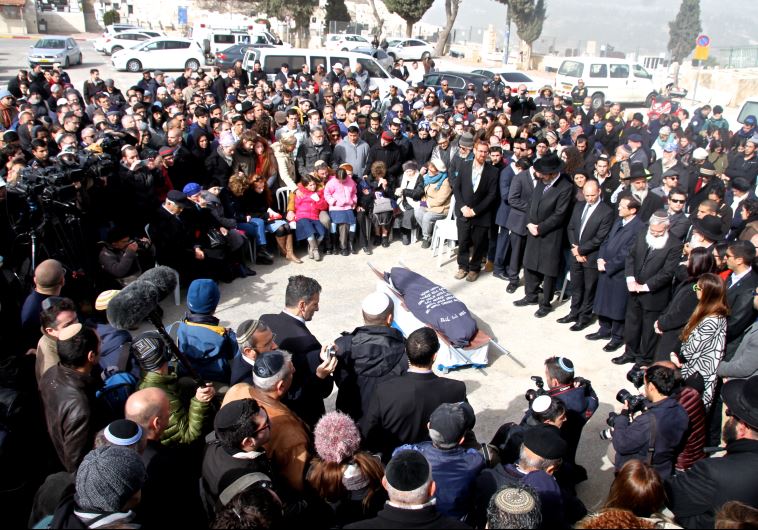Daughter of terrorist victim Dafna Meir: I’m sorry I couldn’t help you
The mother of six who always told people that life was as “good as honey” was killed on Sunday evening, as she stood just inside her doorway.
 Funeral of Dafna Meir in Jerusalem- January 18, 2016(photo credit: TOVAH LAZAROFF)Updated:
Funeral of Dafna Meir in Jerusalem- January 18, 2016(photo credit: TOVAH LAZAROFF)Updated: